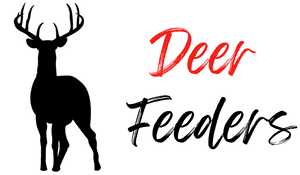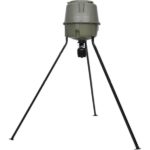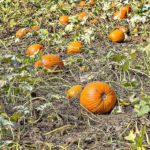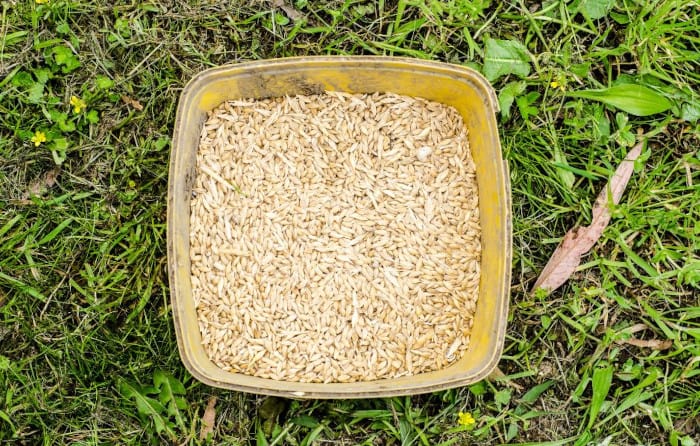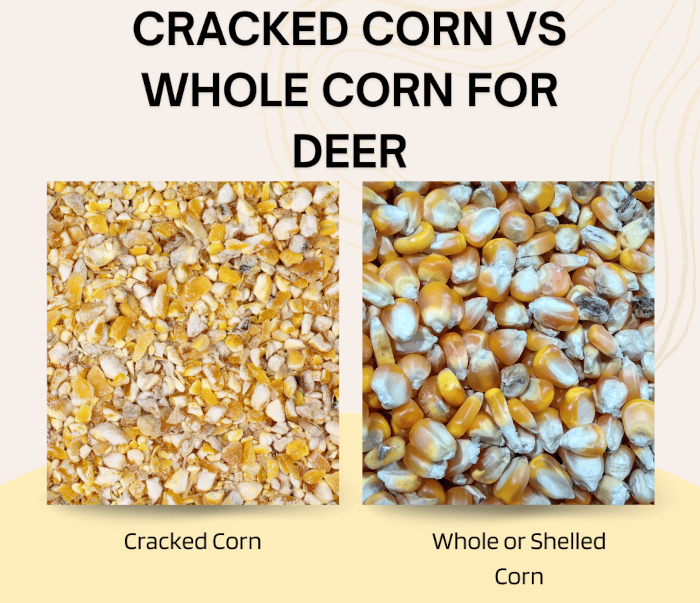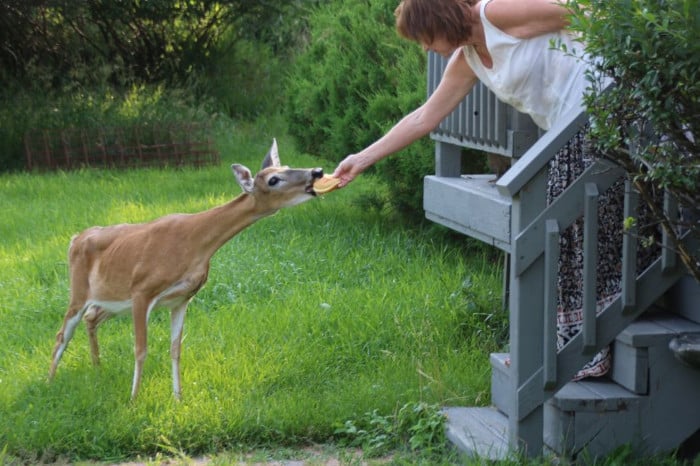Operating a deer feeder or feeders can be an excellent way to keep a population of deer healthy and keep them returning to one specific area. At my day job, I spend a significant amount of time answering questions about deer feeders, and one that seems to be asked repeatedly is this one: Should I run a deer feeder year-round or only during the hunting season?
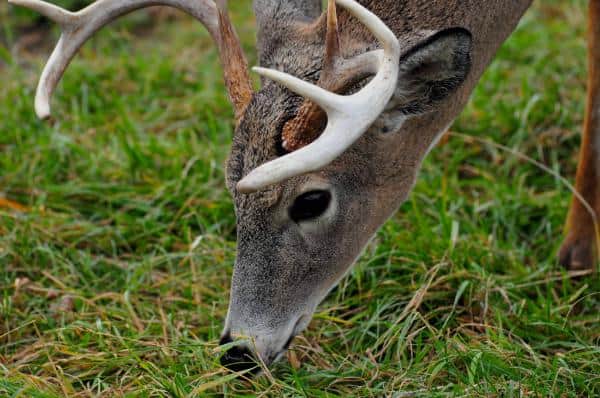
Before I get into the specifics of answering that question, there are a few crucial points I want to make that are directly related to this question:
- Become familiar with the laws in your state regarding deer feeders
- Understand the food cycle for deer in your area
Become Familiar with the Laws in Your State Regarding Deer Feeders
If you’ve read any other posts or articles on this website, then you’ll know that I talk about this topic over and over. I do that because it is such an important topic. Other than poaching, there is no faster way to lose one’s hunting license or hunting privileges than violating a state’s laws regarding baiting deer or hunting over bait.
It’s essential to fully understand your specific state’s laws regarding what you can or cannot do in supplemental deer feeding. For example, some states will allow a hunter to operate a deer feeder only during designated periods before or after the hunting season, while others only allow supplemental feeding during the winter months. Each state is different, and I recommend that you have a clear understanding of those laws.
For example, in my home state of North Carolina, a hunter can do supplemental deer feeding year-round, with one exception, and that’s during Turkey season. During turkey season, a hunter cannot do any supplemental deer feeding if he or she will hunt turkeys in the area and must have all remnants of any supplemental feed off the ground before Turkey season starts.
A customer from my day job was unaware of this rule, so he kept feeders going all year and ended up losing his NC hunting license for 12 months because he was charged with hunting turkeys over bait. The “I didn’t know the law” excuse doesn’t go very far with most Game Wardens or Wildlife Officers.
Understand the Food Cycle for Deer in Your Area
This is a fancy way of saying that you need to understand what deer eat through the year as the seasons change.
For example, using my home state of NC again, the Spring and Summer seasons offer deer a plethora of natural feed sources that supplemental deer feeding isn’t necessary from a food supply perspective. The food sources begin to die off in fall, and then Winter is really where deer in my area need the help of supplemental feeding.
This food source cycle may be different in your area, which is why it’s essential to understand the cycle. If you live in the NE part of the US, then colder weather comes in earlier, and the deer in your area may benefit from supplemental feeding that starts sooner in late Summer.
Let’s get back to answering the central question about operating deer feeders all year long.
Why Operate a Deer Feeder All Year?
Assuming that deer in your area don’t need a supplemental food source throughout the year, what’s the point in running a deer feeder or doing supplementary feeding year-round?
Most hunters operate a deer feeder for one of two reasons (or both reasons)
- It offers the deer a food source during lean times as a means to keep the population healthy.
- It serves as an incentive to keep the local deer population either on your hunting land or in a specific area for future hunting purposes.
While most deer establish a territory or area that they like, they will also migrate or leave an area searching for food or if a food source dies out. Keeping a deer feeder running helps to keep the deer in a specific territory for future hunting purposes. While offering a food source may not be enough to stop some deer from migrating to different locations, it is usually sufficient to keep at least a certain number of the local population returning to the feeder for an easy meal.
What are the Downsides of Running a Deer Feeder Year-Round?
Running a deer feeder all year does have some potential downsides, including:
- Staying in compliance with state laws
- Potentially spreading communicable diseases deer to deer
- The additional costs
Let’s discuss each one in more detail:
Staying in Compliance with State Laws
We pretty much already covered this topic above, so I’m not going to rehash it. Know the rules and regulations about feeding deer in your state.
Potentially Spreading Infectious Diseases Deer to Deer
Deer are herd animals by nature, so they always run the risk of infecting each other with diseases like Chronic Wasting disease or Hemorrhagic disease. Deer may come to a feeder, and that close contact could be enough to spread a contagious disease. To date, I haven’t seen any concrete data saying that deer feeders cause an increase in either of the diseases I mentioned before, but it is worth noting as a possibility.
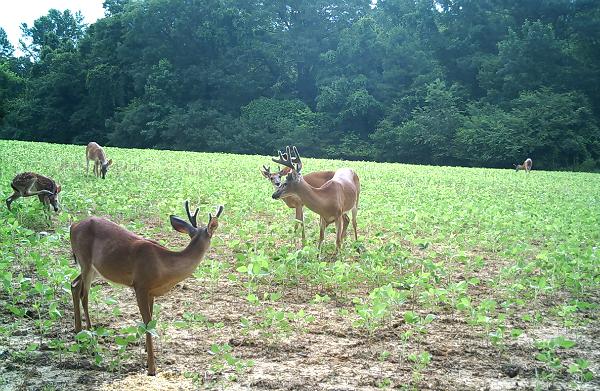
The Additional Costs Associated with Year-Round Supplemental Feeding
Maintaining a deer feeder throughout the year creates more out-of-pocket expense for a hunter than running that same feeder through the winter months. Those costs include the additional feed, additional feeder maintenance, and the cost of your time to refill the feeder.
